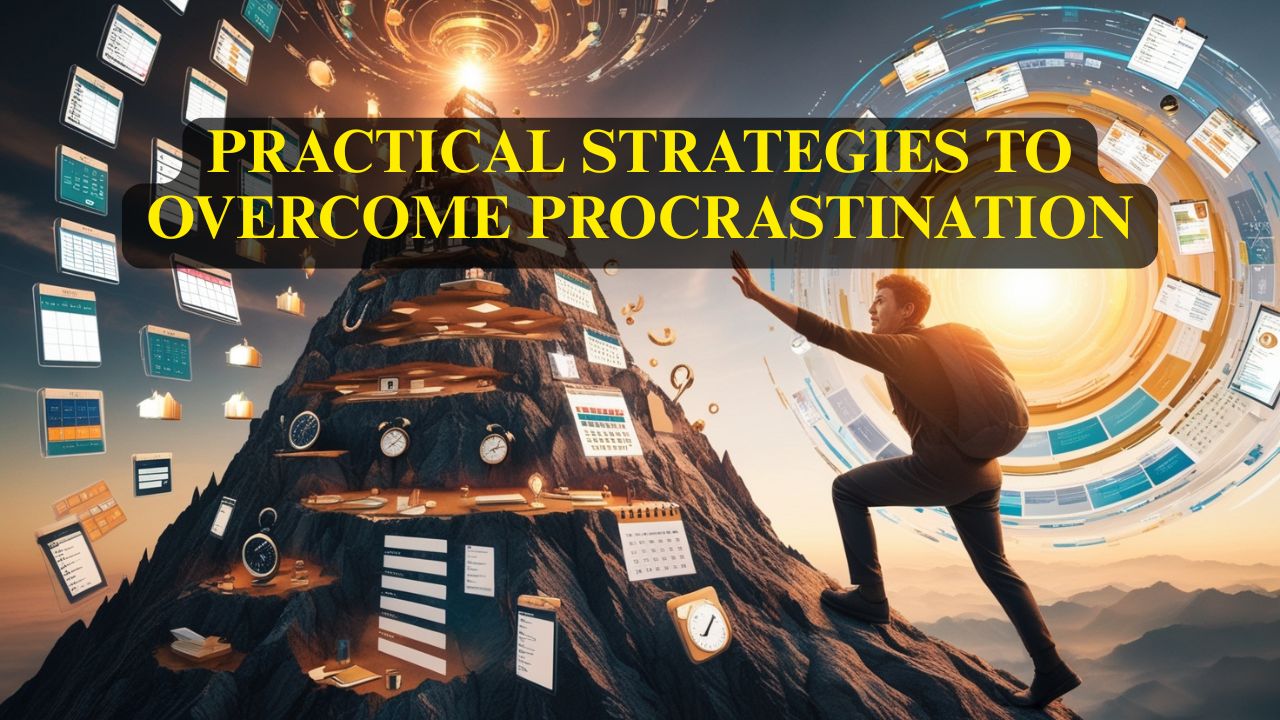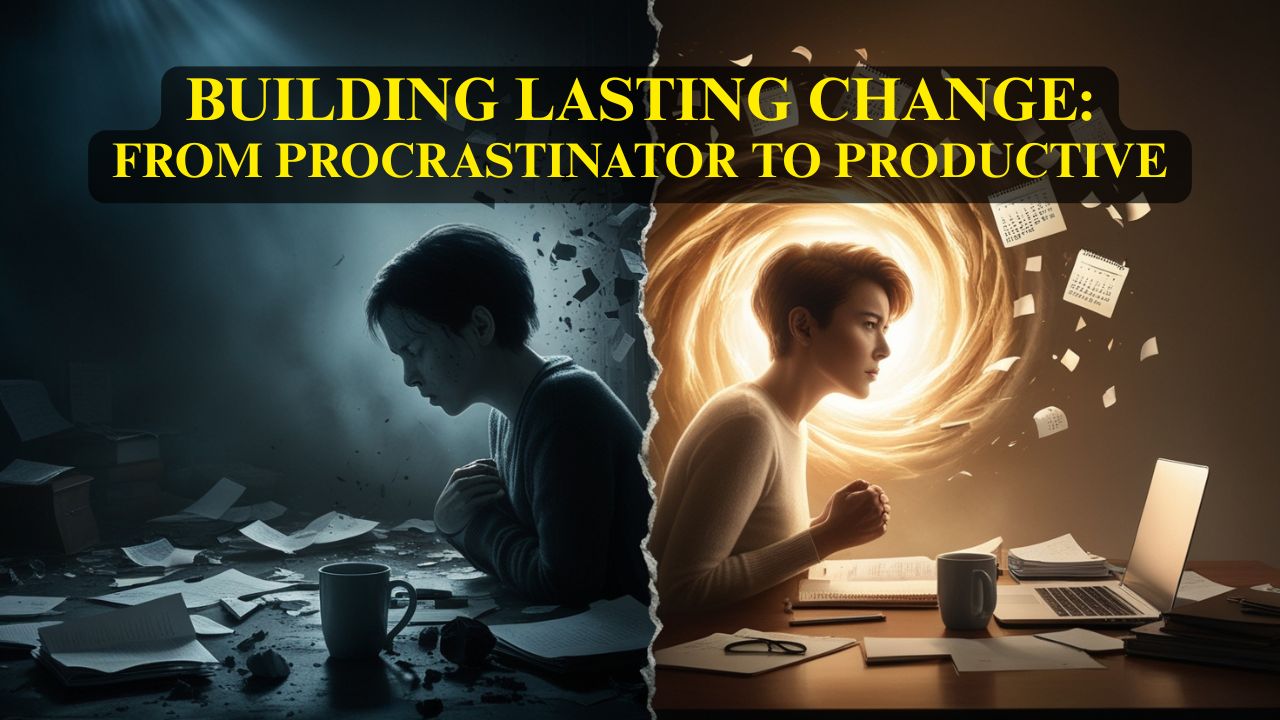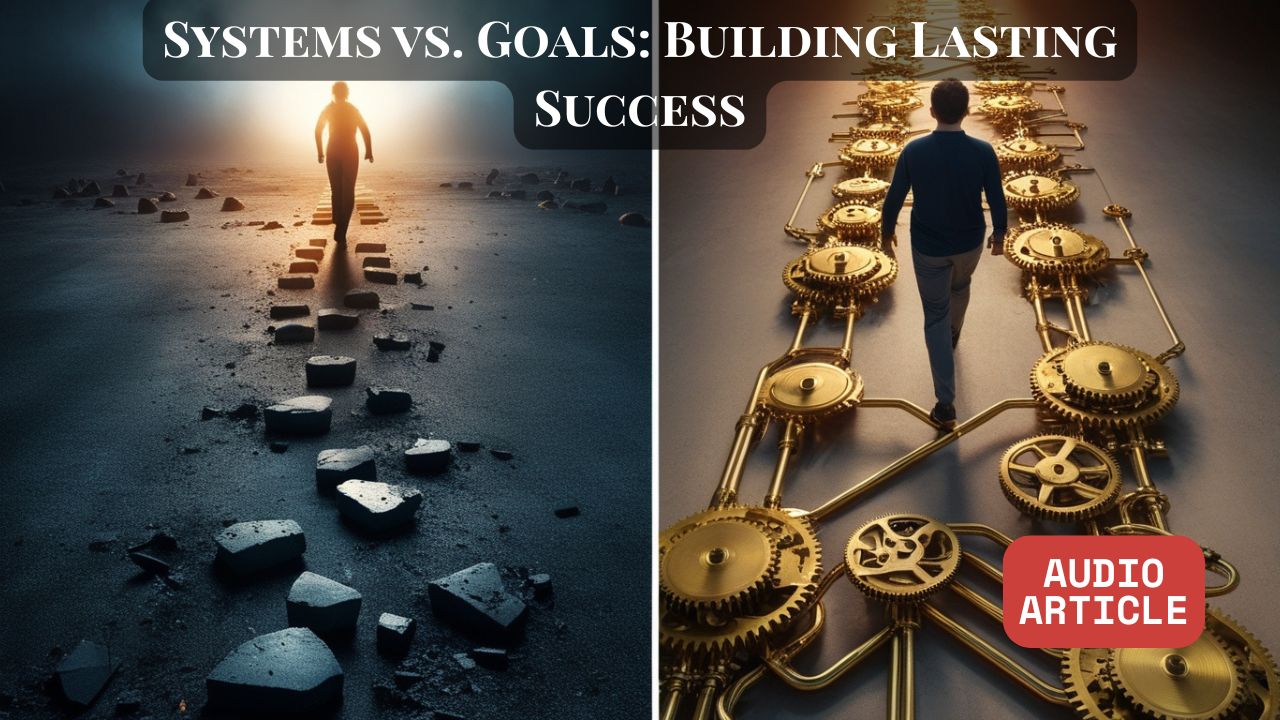Systems vs. Goals: Building Success That Lasts
Picture this: It's January 1st, and you're setting your goals for the year. You want to lose 20 pounds, read 24 books, save $10,000, and finally get organized. You write them down, maybe even create a vision board, and you feel that familiar surge of motivation and possibility.
Fast forward to March. The gym visits have dwindled to once a week. You've read two books instead of six. Your savings account looks pretty much the same. Your office is still a disaster zone. You start to wonder what's wrong with you - why can't you stick to anything?
Here's the thing: there's nothing wrong with you. The problem is that you're focusing on outcomes instead of processes. You're setting goals instead of building systems. And while goals can provide direction and motivation, systems are what actually create lasting change.
The difference between goals and systems isn't just semantic - it's the difference between hoping for change and creating the conditions that make change inevitable.
Why Goal-Setting Often Fails
Goals have become so popular in our culture that questioning them almost feels heretical. We're told to set SMART goals, visualize our outcomes, and maintain unwavering focus on what we want to achieve. But if goal-setting is so effective, why do most people abandon their New Year's resolutions by February?
The problem with goals isn't that they're bad - it's that they're incomplete. Goals tell you where you want to go, but they don't tell you how to get there. They focus your attention on the destination while ignoring the journey.
Goals Are Binary Either you achieve your goal or you don't. Either you lose 20 pounds or you fail. Either you read 24 books or you fall short. This binary thinking creates a cycle of temporary motivation followed by discouragement when progress isn't as fast or linear as expected.
If you set a goal to lose 20 pounds and you lose 15, the goal-focused mindset sees this as failure. But 15 pounds of weight loss is actually a significant achievement that improved your health and well-being. The arbitrary number you chose has obscured the real progress you made.
Goals Create a "Someday" Mentality When you're focused on goals, happiness and satisfaction are always in the future. You'll be happy when you lose the weight, when you get the promotion, when you reach the income target. This postpones contentment and makes the present moment feel like something to endure rather than enjoy.
Meanwhile, life is happening right now. If you're always focused on future outcomes, you miss the satisfaction and growth that comes from the daily process of improvement.
Goals Can Create Pressure and Anxiety The bigger and more important your goals, the more pressure you feel to achieve them. This pressure can actually be counterproductive, creating anxiety that interferes with performance and enjoyment. You start to avoid activities related to your goal because they remind you of how far you still have to go.
Goals Don't Account for Life's Complexity Life rarely unfolds in straight lines, but goals assume it will. You set a goal to save $10,000, then your car breaks down and needs a $3,000 repair. You set a goal to exercise five times a week, then work gets crazy and your schedule changes completely.
When life throws you curveballs - and it always does - goal-focused thinking makes you feel like you're failing, even when you're adapting intelligently to changing circumstances.
Goals Focus on What You Want to Get, Not Who You Want to Become Perhaps most importantly, goals focus on having rather than being. You want to have a fit body, have more money, have a clean house. But lasting change comes from identity shift - becoming the type of person who naturally maintains their health, manages money well, and keeps their environment organized.
Creating Processes That Run Themselves
Systems thinking flips the script entirely. Instead of focusing on what you want to achieve, you focus on what you want to do consistently. Instead of asking "What do I want?" you ask "What kind of person do I want to become, and what would that person do regularly?"
A system is simply a collection of processes and habits that, when followed consistently, lead naturally to your desired outcomes. The magic is that you don't have to force or willpower your way to results - the results emerge naturally from the system.
Health System vs. Weight Loss Goal Instead of setting a goal to lose 20 pounds, you might create a system around health:
- Daily morning walk, regardless of weather
- Eating a vegetable with every meal
- Drinking water first thing upon waking
- Getting to bed by 10 PM on weeknights
This system doesn't obsess over the scale. Instead, it focuses on the daily practices that naturally lead to better health. Weight loss may happen as a byproduct, but even if it doesn't happen as quickly as hoped, you're still becoming healthier every day through your system.
Learning System vs. Reading Goal Instead of setting a goal to read 24 books, you might create a learning system:
- Read for 20 minutes every morning with coffee
- Listen to audiobooks during commutes
- Keep a book in your bag for waiting periods
- Join a book club for accountability and discussion
This system makes reading a natural part of your daily routine rather than a task to complete. Some months you might read four books, others just one. But over time, you're becoming someone who learns continuously, which is more valuable than hitting an arbitrary number.
Financial System vs. Savings Goal Instead of setting a goal to save $10,000, you might create a financial system:
- Automatic transfer of $200 to savings every payday
- Review all expenses monthly and look for ways to optimize
- Use the 24-hour rule before making purchases over $100
- Earn side income through one marketable skill
This system builds wealth-building habits that will serve you for life, regardless of specific dollar amounts or unexpected expenses.
The beauty of systems is that they're designed to handle variability and imperfection. If you miss a day or week, you simply return to the system. There's no sense of failure, just a gentle return to the process that's working.
How Small Improvements Compound Over Time
One of the most powerful aspects of systems thinking is how it leverages the compound effect. Small, consistent improvements may seem insignificant day by day, but they create remarkable results over months and years.
The 1% Principle If you get just 1% better at something every day, you'll be 37 times better after one year. This isn't just motivational math - it's how compound growth actually works. The key is that the improvements are consistent and directional.
In practical terms, this might mean:
- Reading just 10 pages a day instead of binge-reading on weekends
- Doing 5 push-ups daily instead of sporadic intense workouts
- Saving $5 a day instead of trying to save large chunks irregularly
- Spending 15 minutes organizing instead of weekend cleaning marathons
These small actions feel almost trivial in the moment, but they create momentum that builds on itself. More importantly, they're sustainable. Anyone can read 10 pages or do 5 push-ups, even on busy or difficult days.
Systems Create Their Own Momentum The more you follow a system, the easier it becomes to continue following it. Your identity starts to align with your actions. You begin to see yourself as a reader, a healthy person, or someone who's good with money. This identity shift makes the behaviors feel natural rather than forced.
The person who walks every morning eventually can't imagine starting their day without a walk. The person who writes daily starts to feel uncomfortable when they haven't written. The person who maintains a tidy workspace automatically puts things away because that's just what they do.
Progress Becomes Self-Reinforcing As your systems produce results, they create positive feedback loops that make continuation even more likely. The person whose daily walk improves their energy and mood wants to keep walking. The person whose reading habit expands their knowledge looks forward to learning more. The person whose financial system creates security feels motivated to continue building wealth.
This is the opposite of goal-focused motivation, which often decreases as you get closer to your target. With systems, motivation actually increases as you see the benefits of your consistent actions.
Measuring Progress Without Obsessing Over Outcomes
Systems thinking doesn't ignore results - it just measures them differently. Instead of obsessing over end outcomes, you track process metrics that indicate whether your system is working.
Process Metrics vs. Outcome Metrics Outcome metrics measure results: weight lost, money saved, books read, income earned. Process metrics measure actions: days exercised, dollars invested, pages read, skills practiced.
The key insight is that you have much more control over process metrics than outcome metrics. You can't force your body to lose weight on a specific timeline, but you can control whether you take your daily walk. You can't control market returns on your investments, but you can control how much you save each month.
When you focus on process metrics, you maintain a sense of agency and progress even when outcomes are slow to materialize or affected by factors beyond your control.
Leading vs. Lagging Indicators Process metrics are leading indicators - they predict future results. Outcome metrics are lagging indicators - they tell you what already happened. By focusing on leading indicators, you can course-correct quickly and maintain momentum even when lagging indicators aren't showing the results you want yet.
If your system includes daily writing and your process metric is "days written," you'll know within a week whether your system is working. You don't have to wait months to see if you've finished a book or years to see if you've become a good writer.
Celebrating Systems Wins Instead of waiting for big outcome victories, celebrate systems victories. Celebrate the fact that you walked every day this week, that you saved money for three months straight, that you've read daily for 30 days. These celebrations reinforce the behaviors that lead to long-term success.
This approach maintains motivation and satisfaction throughout the journey rather than making you wait for distant outcomes to feel good about your progress.
Building Anti-Fragile Systems
The best systems aren't just resilient to disruption - they actually get stronger when challenged. This is called anti-fragility, and it's a crucial characteristic of sustainable systems.
Building in Flexibility Rigid systems break when life changes. Flexible systems adapt. Instead of committing to exercise at the gym five days a week, you might commit to moving your body daily in whatever way fits your schedule and circumstances.
This might mean gym workouts when possible, home workouts when traveling, walks when time is short, or stretching when energy is low. The specific form matters less than the consistency of the underlying commitment to daily movement.
Multiple Pathways to Success Instead of relying on one specific approach, build multiple ways to achieve your desired outcome. If your system is about continuous learning, you might include reading, podcasts, online courses, conversations with mentors, and hands-on experimentation.
This way, if one pathway becomes unavailable or less effective, you have others to fall back on. Your system continues working even when specific tactics need to change.
Minimum Viable Habits For each element of your system, identify the minimum version that still counts. On your worst days, when motivation is low and time is short, what's the smallest action you can take that maintains the system?
This might be one page of reading instead of 20, one minute of exercise instead of 30, or saving one dollar instead of 50. These minimums keep your system alive during difficult periods and make it easier to return to full engagement when circumstances improve.
Designing Your Personal Systems
Creating effective systems is both an art and a science. Here's a framework for designing systems that actually work for your life:
Start with Identity, Not Outcomes Ask yourself: "What kind of person do I want to become?" instead of "What do I want to achieve?" The person you want to become will naturally engage in certain behaviors and avoid others.
If you want to become someone who's physically strong, what would that person do daily? If you want to become someone who's financially secure, what systems would they have in place? If you want to become someone who's continuously learning, what would be part of their daily routine?
This identity-first approach creates intrinsic motivation because you're acting in alignment with who you want to be, not just what you want to have.
Design for Your Actual Life, Not Your Ideal Life Be honest about your current reality - your schedule, energy levels, constraints, and preferences. Design systems that work with your life as it is, not as you wish it were.
If you're not a morning person, don't build a system that requires getting up at 5 AM. If you travel frequently, don't create a system that only works at home. If you have young children, don't design something that requires hours of uninterrupted time.
Focus on Consistency Over Intensity It's better to do something small consistently than something big sporadically. The person who writes 200 words daily will produce more over a year than the person who writes 2,000 words once a week.
Consistency builds habits, creates momentum, and develops identity. Intensity might feel more impressive, but it's usually not sustainable over the long term.
Build in Regular Review and Adjustment Set up regular times to review how your systems are working and make adjustments as needed. This might be weekly, monthly, or quarterly, depending on the system.
During these reviews, ask yourself: What's working well? What's not working? What has changed in my life that might require system adjustments? What new elements might strengthen this system?
Systems should evolve as you grow and as your circumstances change. The system that works for you today might need modifications next year, and that's perfectly normal.
Common System Design Mistakes
As you build your own systems, avoid these common pitfalls:
Making Systems Too Complex Simple systems are more likely to be followed consistently. If your system requires multiple apps, complex tracking, or remembering numerous rules, it's probably too complicated. Start simple and add complexity only if it clearly improves results.
Trying to Change Too Much at Once Focus on building one solid system at a time rather than trying to systematize your entire life simultaneously. Once one system is running smoothly and feels automatic, you can add another.
Ignoring Your Natural Preferences Work with your natural tendencies rather than against them. If you prefer variety, build flexibility into your systems. If you prefer routine, create more structure. If you're social, include accountability partners. If you're private, design systems you can follow independently.
Focusing Only on Addition, Not Subtraction Sometimes the most powerful systems involve removing things rather than adding them. What would you need to stop doing to make room for what you want to start doing? What habits or commitments are preventing you from following through on your systems?
The Long-Term Power of Systems Thinking
When you shift from goals to systems, you're making a fundamental change in how you approach improvement and success. Instead of hoping for outcomes, you're creating the conditions that make good outcomes inevitable.
This shift affects every area of your life:
You Become More Patient Systems thinking makes you more patient because you understand that meaningful change takes time and consistency. You're not looking for quick fixes or dramatic transformations - you're building something sustainable.
You Become More Resilient When setbacks occur - and they will - you don't see them as failures. You see them as temporary deviations from your system that you can quickly correct. Bad days or weeks don't derail you because you know the system will work if you return to it.
You Become More Present Instead of constantly focusing on future outcomes, you can find satisfaction in the daily process of following your systems. Each day you follow your system is a successful day, regardless of long-term results.
You Develop Compound Confidence Every day you follow through on your systems, you prove to yourself that you're someone who does what they say they'll do. This builds deep confidence that extends beyond any specific area of improvement.
Remember: Systems Serve You, Not the Other Way Around
The goal of building systems isn't to become a productivity robot who optimizes every moment of life. It's to create sustainable processes that naturally lead to the outcomes you want while allowing you to enjoy the journey.
Good systems should make your life easier and more enjoyable, not more complicated and stressful. If a system isn't serving you, change it. You're the designer of your own systems, and you have complete authority to modify them as needed.
Some people thrive on detailed, structured systems. Others prefer loose, flexible approaches. Some like tracking and measurement, while others prefer intuitive progress monitoring. There's no one right way to build systems - only what works for your personality, lifestyle, and goals.
Start Small, Think Big You don't need to systematize your entire life overnight. Start with one area that matters to you and build a simple system around it. Focus on consistency over perfection, process over outcomes, and identity over achievement.
As your first system becomes automatic, you can add others. Over time, you'll have a collection of systems that support different areas of your life while working together to help you become the person you want to be.
The beauty of systems thinking is that it works regardless of your starting point, your past failures, or your current circumstances. You don't need perfect conditions or extraordinary willpower - you just need to start with small, consistent actions and trust the process to compound over time.
Your future self is shaped by the systems you build today. Choose them wisely, follow them consistently, and watch as the person you want to become emerges naturally from the processes you create.






